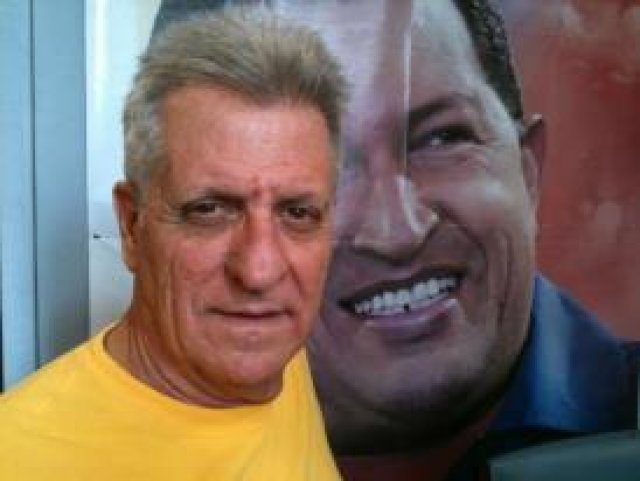
More than 40 people came to hear Miguel Angel Nunez, a co-founder of IPIAT (the Institute for Production and Research in Tropical Agriculture) in Venezuela and a former coordinator of the Latin American Agroecological Movement at a public forum in Sydney on January 30.
The speaker was welcomed by Miriam Navarro, representing the Venezuelan embassy in Australia. The forum was organised by the Australia Venezuela Solidarity Network and supported by the embassy and the Latin American Social Forum.
"The task of defending our revolutionary process faces complex challenges," Nunez said. "It requires a huge commitment by everyone involved in the Bolivarian project.
"To understand the Venezuelan revolutionary process, we need to see different dimensions. First is the key role of the leadership of President [Hugo] Chavez. Second is, what does the process mean for ordinary workers, students and citizens. Third is the place of the Venezuelan Constitution in our political life. And fourth is the question of the continuation of the mandate of President Chavez.”
Chavez was re-elected on October 7, but has temporarily been unable to undertake his duties as president because of serious illness.
"Another big factor is the high level of participation of the Venezuelan people, despite the undeclared war being waged by the national and international private media on the Venezuelan revolution. The people are answering this campaign on a grassroots level.
"The election victories for the revolution on October 7, and on December 16 [the wins by United Socialist Party of Venezuela candidates in 23 of 26 elections for state governors] were important. So was the decision of the Supreme Court, which gave endorsement to the legitimacy of the transitional process put in place while Chavez is ill.
"The capitalist crisis in Europe and North America is a factor in the vicious campaign launched by the international mass media against President Chavez and the Venezuelan government. But, in the face of these attacks, we will not surrender, because we will never lose our dignity.
"The strategic vision provided by President Chavez is vital. One example is the Second Socialist Plan, 2013-2019 [taken to the people as a manifesto in the 2012 presidential elections]. Despite many problems and mistakes made by the revolution, the president is motivating the people to play their part in planning the future.
"More than 4 million people are on Twitter with the president, and more than 6000 recommendations for improvements in the plan have so far been submitted.
"The socialist plan contains five historical objectives, 25 national objectives and more than 500 strategic objectives. The five historical objectives are: full national independence; ecosocialism and socialism of the 21st Century; realising the full economic, political and social potential of Venezuela; solidarity from a new geopolitical and pluricultural viewpoint; and save the planet, save humanity.
"We need to integrate these five objectives, in their planetary, continental, national and local aspects. Ecosocialism means socialism and ecology taken together. This includes planning to have 60% of the Venezuelan population organised in communes by 2019.
"President Chavez will be back. He will tell the people and the world when he will retire. There are many possible ways to keep the revolution going.
"The right-wing opposition has no alternative. They merely receive their directions from imperialism. They have no alternative political project or plan.
"In conclusion, even though the movement of the revolution and the government is sometimes slow, we are involved in a collective process which will find the way forward.”
In discussion, Nunez said "ecology is human, humanity is part of ecology. They are interdependent. Failing to fully understand this is a big mistake made by some in the left movement."
He also discussed the strategy of the revolution to manage biodiversity in Venezuela, and to tackle the serious environmental problems faced by the country, largely as a legacy of the decades of conservative rule before the revolution.